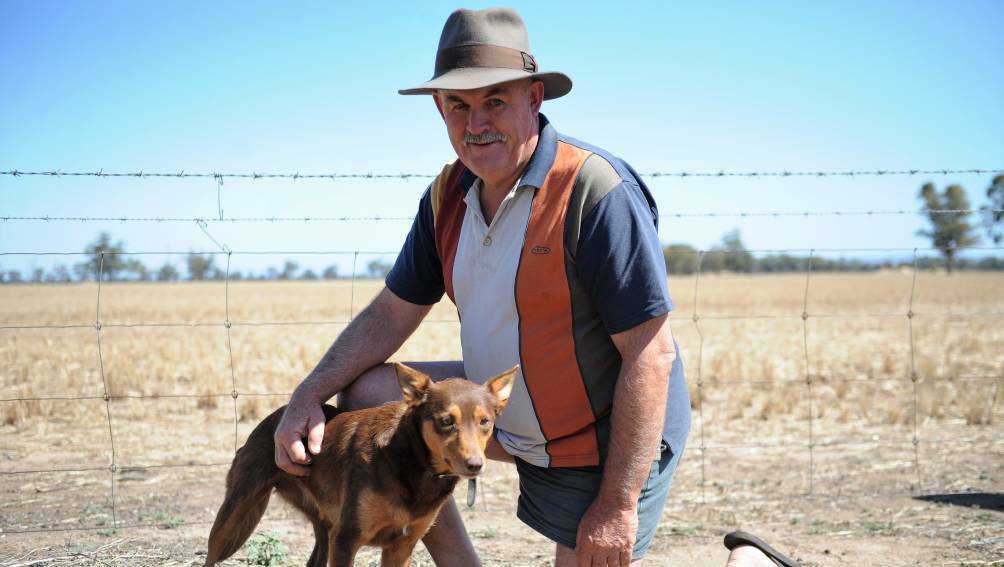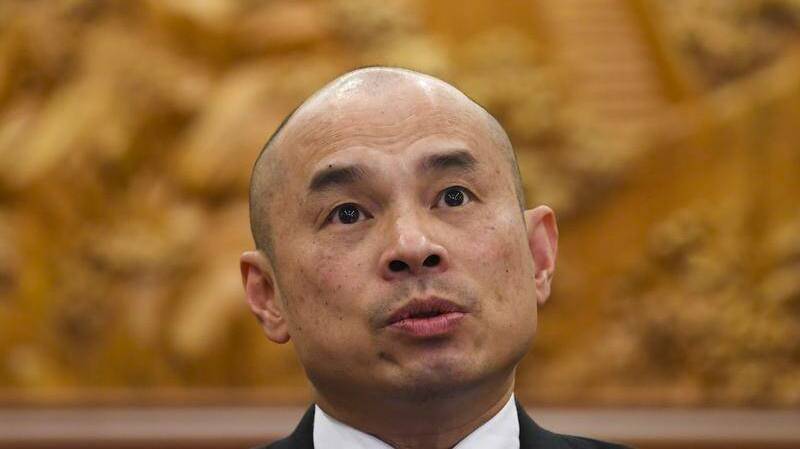
The VFF's Wimmera president Graeme Maher says farmers must learn to live with challenging trade relations between China and Australia.
Subscribe now for unlimited access.
or signup to continue reading
It follows the country's top diplomat denying the country is trying to intimidate Australia by targeting its exports, including barley.
In May, China announced tariffs of up to 76.3 per cent on Australian barley exports.
China had initiated an anti-dumping investigation in November 2018, though the announcement closely followed Australia's call for an independent investigation into the origin of COVID-19.
The pandemic began in the Chinese city of Wuhan in December.
Mr Maher, who farms at Lubeck and in the Northern Grampians, said farmers were always looking for new markets, and that for barley, one of these was the Middle East.
READ MORE: Grampians man narrowly escapes car fire
"But China is the elephant in the room," he said.
"They've taken so much of it in the past. They probably have another thing on their agenda, in that they don't need as much (barley) because they don't have anywhere near the pigs they used to have.
"China is the biggest market in the world, and that's just the way it is. The wool market and the meat market to an extent are the same. If they don't want to pay as much, they just don't, and everyone will toe the line eventually. I hate to say it, but that's the way the system works.
"If you start taunting the bully in the schoolyard, you do it at your peril. It's all very nice to say 'Don't bully us', but the real world says a totally different thing."

On Wednesday, Minister Wang Xining, the deputy head of mission at China's Australian embassy, addressed the National Press Club in Canberra.
He denied the tariffs and investigations on Australian barley, beef and wine were a form of retaliation.
"As far as I know, there have been more than 100 anti-dumping and anti-subsidy cases launched by Australian companies to the Australian government (on Chinese exports)," he told reporters.
"Ten (cases) concerning aluminium, steel and agricultural products are still pending. If you interpret it as economic coercion from the Chinese government, I hope you could ask the Australian government whether it's also economic coercion from them."
Minister Wang also cast doubt over whether the virus originated in Wuhan. He said that the Australian government's call for an independent inquiry "singled out" China for scrutiny.
Along with trade issues, Mr Maher said there would be less demand for Wimmera grain domestically in 2020-21.
"We had a good season in the Wimmera last year, and the whole east coast of Australia didn't have enough grain, so people were dragging it north quite a distance," he said.
"This year, the east coast is doing very well, so the price will come off and because there is a lot of grass about people won't be feeding grain to their sheep."
The federal Department of Agriculture anticipated barley prices to fall by three per cent in the June quarter of 2020 due to high world production. It predicted the Chinese tariffs to force sellers to divert Australian barley to alternative, lower-value markets, including Saudi Arabia, Japan and Vietnam.
If you are seeing this message you are a loyal digital subscriber to the Wimmera Mail-Times, as we made this story available only to subscribers. Thank you very much for your support and allowing us to continue telling the Wimmera's story. We appreciate your support of local journalism.


